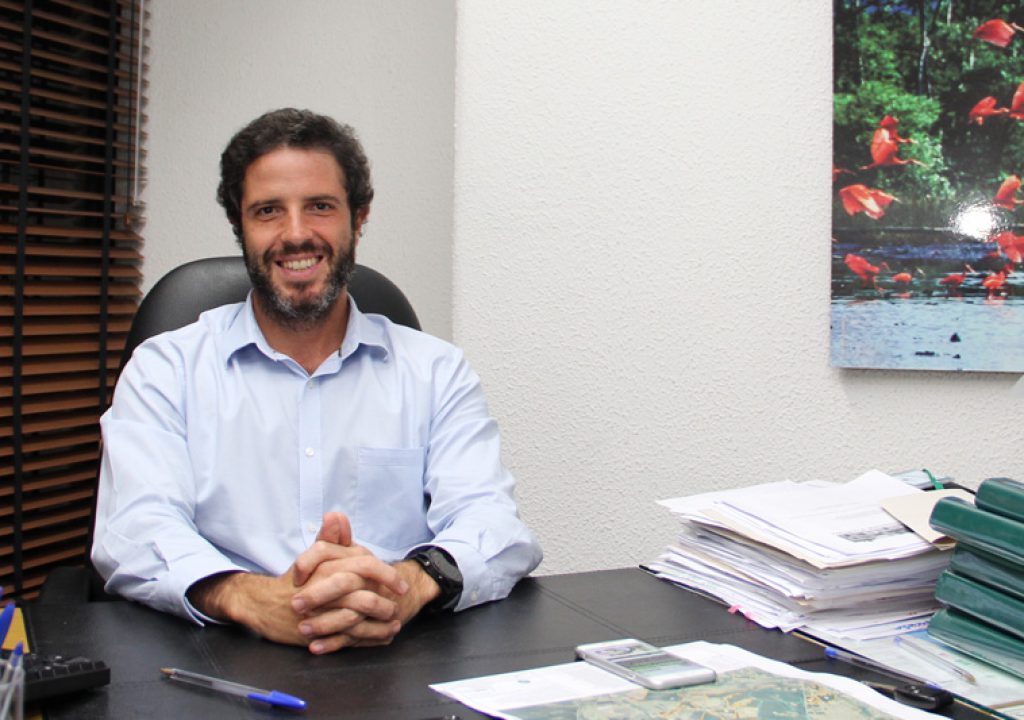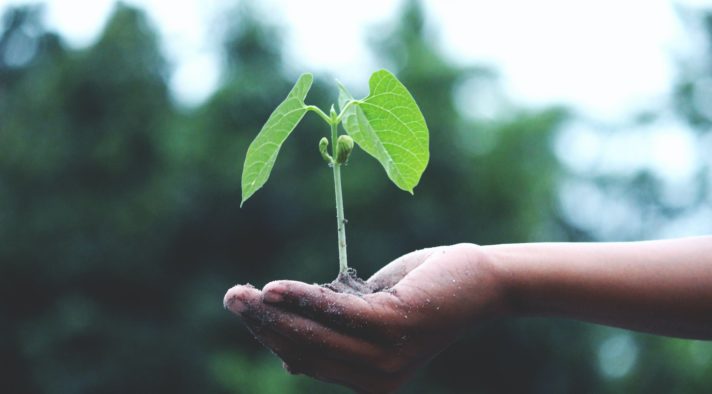As part of the Regions4 interviews series, we talk to Mr. Rodrigo Levkovicz, Executive Director of Forest Foundation – Fundação Florestal of the State of São Paulo, to learn about his region’s innovative solutions to end Ocean pollution.
Regions4: What are the impacts of human activity and climate change on oceans, notably in your region?
Some of our main issues are overfishing, predatory tourism, water contamination by dumping waste and sewage at sea, the lack of planning for land use and occupation, the bio-invasion of exotic species such as lionfish and sun coral, irregularly introduced into our coasts, and oil spills at sea can be listed as the main causes of loss of marine biodiversity due to human activity.
This scenario gets worse when we consider the extremity of the events due to climate change, which has been increasing social inequalities, establishing a non-virtuous cycle of further degradation to the marine environment by the increase of unsustainable human activities. The more vulnerable people are, the less concern there is for medium and long-term public policies, as required by socio-environmental policies.
We need to act immediately. We are going through a period of huge global biodiversity loss that may compromise the resilience of marine ecosystems, setting a path of no return for life on Earth.Rodrigo Levkovicz
Regions4: Why is it essential to act? and who should take action?
We need to act immediately. We are going through a period of huge global biodiversity loss that may compromise the resilience of marine ecosystems, setting a path of no return for life on Earth. It is worth remembering that most of the oxygen we breathe comes from the oceans, and its production depends on an intricate and complex network of interactions between living beings and the marine and coastal environment.
Everyone has a responsibility when it comes to protecting the oceans. National and subnational governments must, based on scientific knowledge, promote sustainable production chains, encourage certification mechanisms, create and maintain environmentally protected spaces, issue and enforce command and control norms, and promote financial compensation for imposed restrictions, especially for the most economically vulnerable populations, among other measures. The academia must be aware of seeking feasible solutions from the economic and social points of view. Companies must commit to adopting a process of transition to a greener/bluer economy. And the common citizen has a crucial role in this whole process, either by demanding the national and subnational governments or by adopting a more sustainable way of life, preferring products and companies that adopt more efficient production chains.
Regions4: How is your region responding to this crisis?
In the state of São Paulo, the subnational government has planned and regulated the sustainable use of the marine territory through participatory processes and the creation of protected areas. On our coast, besides the protected areas located along the coast, there are three large Marine Environmental Protection Areas (North, Center and South), which allow us to act in prevention with environmental education programs, as well as to create initiatives that value the local populations, known as caiçaras, who have fishing and handicrafts as their main sources of income.

We recently launched the “Mar Sem Lixo” (Waste-Free Sea) Program, which is based on the same principle, that is, to empower the local population as main actors for the defense of the environment. The Mar Sem Lixo Program registers and pays traditional fishermen to collect the garbage they catch by accident in their fishing nets. We are starting the program with three collection points, with the possibility of increasing them over time. The remuneration will be done through food cards that can be used to buy groceries in supermarkets.
Furthermore, we believe that it is up to the public authorities to create the structural programs to protect the natural resources of a country or a state, but we do not rule out partnerships with the private sector, i.e., companies that put nature protection on their list of social responsibility. In addition, we also develop environmental education programs that prepare new generations with a more attentive look at the need to protect the socio-biodiversity of our oceans.
Regions4: What are your messages and commitments going forward and towards the UN conference on Oceans?
The first message that I would like to share is the importance of people, in civil society, in academia, or in governmental entities. It is people acting in networks that give perennity and scale to environmental public policies. We need to value our human capital and strengthen the institutions dedicated to the environmental cause.
I invite you to come and meet us at the UNOC conference, and though our network Regions4, and learn more about the work done by almost 500 professionals from different areas, in more than 119 protected areas that are equivalent to almost 20% of the territory and 53% of the state territorial sea.
Rodrigo Levkovicz
We also need to create and strengthen economic and social mechanisms for the safeguard of marine biodiversity. It is not enough just looking at the environmental component, if it is dissociated from public policies of social inclusion and wealth generation, we will not succeed in the task of protecting the oceans. The oceans must be economic, cultural, and biodiverse assets.
The government of the state of São Paulo is aware of its responsibility as one of the main transforming agents of Brazilian society. Therefore, I invite you to come and meet us at the UNOC conference, and though our network Regions4, and learn more about the work done by almost 500 professionals from different areas, in more than 119 protected areas that are equivalent to almost 20% of the territory and 53% of the state territorial sea. These are professionals who gather their efforts in pursuit of a common goal: the preservation of biodiversity for future generations.



